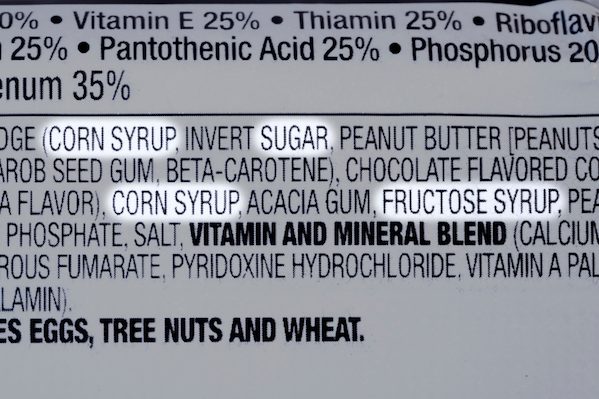
Today’s Popular Diet Plans
In past years, we’ve been blindly eating foods that are convenient, well-marketed, and good tasting -- but today, we’re getting smarter about our food choices.
Nutrition is a growing interest today — and for good reason. In past years, we’ve blindly been eating foods that are convenient, well-marketed, and good tasting (read Salt Sugar Fat by Michael Moss). But today, we’re getting smarter about our food choices. As a result, we’re getting healthier. It might not seem like we’re getting much healthier (with skyrocketing rates of diabetes and obesity), but SweetGreens are popping up in every neighborhood and Whole Foods is always packed. It’s either we’re getting healthier, or the marketers are reversing course?
Anyway, with all the hype surrounding nutrition, there are more than enough diets to choose from. And just like mass marketing influences how we choose our food, it also affects how we select our diet. To make the selection process easier, I’ve put together a comprehensive guide to some of the popular diets on the market.

The Paleo Diet:
Humans have been around since the stone age, and our ancestors certainly weren’t making weekly trips to the local Giant to buy a bag of Doritos. The paleo diet is built around the premise that our bodies are built for the hunter-gatherer lifestyles of our evolutionary past.
Typically this diet includes meat, fruits and veggies but omits grains, legumes and dairy.
Studies have shown that individuals on this diet are less hungry less often, maintain a healthier body weight and waist circumference, and have better blood pressure and lipid profiles (9). Just keep in mind that studies surrounding these diets are relatively new and few. That said, please take these findings with a grain of salt — just a grain though because we know salt is related to high blood pressure, friends.
Be aware that the paleo diet has been linked to calcium deficiency (9), but it’s an easy fix as long as you’re aware of the potential hazards.
The Ketogenic (Keto) Diet:
While most low carb diets depend on protein as the main source of energy, the ketogenic diet focuses on fat to supply the majority of daily calories — up to 90 percent. Interestingly enough, the keto diet was originally used to reduce epileptic seizures in children. Recently, it’s made its way into the weight loss arena, but just like with the paleo diet, there haven’t been many studies regarding the long-term effects (yet).
The idea behind keto is to force the body to use an energy form known as ketone bodies. These are produced from stored fat by the liver instead of energy derived from carbohydrates (grains, veggies, fruits). If you really want to be serious about the guidelines, the diet restricts the amount of carbohydrates to less than 50g — for reference, a single banana has 27g of carbohydrates.
Nutrients that we typically consider healthy are also limited in this diet plan. Proteins, for example, are restricted due to their ability to interfere with the body’s use of ketone bodies, a process known as “ketosis.” Not only does the keto diet limit protein consumption, but it also does not differentiate between lean proteins and those high in saturated fats. In fact, while we’ve heard of healthy AKA unsaturated fats (nuts, seeds, avocado, tofu, olive oil), the keto diet mainly promotes saturated fats (coconut oil, lard, butter). The purpose, again, is to force the body to use fat as its primary source of energy. That said, as an educated subscriber to this diet and as someone who understands the health effects that go beyond a number on a scale, you can make the decision to pursue the lean proteins and unsaturated fats.
The keto diet has practically taken over social media for its role in weight loss, but don’t lose sight of the fact that high saturated fats are linked to heart disease and increased low density lipoprotein cholesterol ( or “bad” cholesterol). The diet itself has also been linked to nutrient deficiency, liver issues (because the poor guy is working hard to process all the excess fat), kidney problems, and constipation. There have also been connections to problems with mental processing, since our brain needs sugar from healthy carbs (5).
Each gram of protein or carbohydrate provides four calories of energy, respectively, while a gram of fat provides nine. Taking this into account, it makes sense that your appetite might decrease while doing the keto diet because of the focus on fat consumption. But if this is your initial avenue to weight loss, be aware that the weight will probably return as soon as you adopt your previous eating patterns. When coming off keto, it’s a good idea to be prepared with an eating plan that might include Mediterranean-style foods and regular physical activity to help keep the weight off (6).
Note that while the atkins and keto diets are similar in that they both focus on burning fat by restricting carbs, the atkins diet is more flexible in its allowance of carbohydrate and protein intake. In general, the risks and benefits of the keto diet discussed above hold true for the atkins diet as well.
The Vegan/Vegetarian Diet:
“Going Vegan” is quite the popular term these days. In fact, veganism and vegetarianism have both done an excellent job of climbing the popular culture ladder. Most people are pretty familiar with veganism as a complete restriction of animal products. However, vegetarianism is defined only as the avoidance of meat. Now, there are different restrictions depending on the type of vegetarianism. For instance, ovo-vegetarians eat eggs, but not dairy products, while lacto-vegetarians eat dairy products, but not eggs.
As far as veganism is concerned, research is lacking surrounding its long-term effects because the diet is relatively new. However, current research shows an improvement in cardiovascular health in both veganism and vegetarianism, as well as lower BMI and lower levels of insulin resistance (10). There have also been findings of lower total cholesterol.
On the opposite end, research has also found that vegans tend to have deficiencies in micronutrients, most notably B12 and iodine, which can have long-term health implications. While B12 plays a vital role in blood and nerve cell production, iodine is essential to normal thyroid function. Anemia and hypothyroidism are just two of the potential long-term health effects.
It should be noted that restrictive diets tend to be difficult to sustain. And yet, even if you’re not entirely committed, the simple shift towards plant-based foods leads to a reduction in weight (7). That said, you don’t have to cannonball into a restrictive diet to reap some of the benefits. Simply increasing fruit and vegetable consumption can reduce cardiovascular risk and provide several other positive benefits.
The Mediterranean Diet:
The Mediterranean diet probably isn’t making as many appearances on our Instagram feeds, but it really doesn’t have to because it’s one of the oldest and best researched diets.
The Mediterranean diet is rich in fruits and vegetables, oily fish, olive oil, red wine, lean meats, nuts, and low fat dairy products.
High levels of micronutrients — including beneficial fatty acids such as monounsaturated fatty acids, dietary fiber, and antioxidants — and low levels of saturated fats are hugely beneficial for a number of reasons. In addition to the general cardio-protective benefits associated with this diet, olive oil itself is high in polyphenol and oleic acid, both of which are associated with antioxidant properties and are thought to improve metabolic and lipid profiles (10).
The studies done on the Mediterranean diet have shown a link to improved cardiovascular health and cholesterol levels, prevention of chronic and degenerative diseases including type 2 diabetes, and reduced risks of various cancers (2). And as far as weight loss goes, the Mediterranean diet is associated with a healthier body weight and reduced waist circumference. There’s even research out there suggesting that this diet can delay cognitive decline linked to Alzheimer’s and dementia (2).
And while this isn’t the subject of our present conversation, it couldn’t hurt to throw in that the Mediterranean diet is currently being considered as a model of a sustainable diet because of the above mentioned health benefits and its low environmental impact (2).
Intermittent Fasting (an added bonus):
While intermittent fasting by definition involves periods without eating or drinking, it can be broken down into different categories:
Intermittent fasting can alternate between eating days and fasting days. Or it can be simply reducing food quantity on fasting days and returning to a normal schedule the remaining days. It can even just be time restricted eating, with meals falling within a set time frame during the day while the remainder of the day is spent fasting. Diets that involve less than three meals a day would fall into the third category.
Although mostly conducted on rats, current studies have found improved metabolic profiles and reduced risk of obesity and obesity-related conditions (8). That said, there’s still limited research demonstrating that weight loss in humans on an intermittent fasting diet is superior to a standard calorie reduction plan. Newer studies also exist that suggest that intermittent fasting delays age-related disease by allowing mitochondria — the “powerhouse of the cell” from 7th grade biology class — to change shape based on energy demand, which is apparently an important aspect in longevity (3). But again, there’s not a lot out there linking intermittent fasting with decreased development of chronic disease (yet).
While studies haven’t found intermittent fasting to be harmful physically or mentally, you can expect intense hunger on fasting days, especially with alternate day fasting (8).
The Rundown:
So you want to know which diet is the best, right? Well here’s the thing: there is no best diet. There’s just a best diet for you.
And that diet may not cleanly fall into any of the above categories. It may be a combination. Every diet has its pros and cons — some more than others, and those pros and cons vary among individuals.
But the following is true regardless of the dietary restrictions to which you adhere: Plant based foods aren’t only important for your cardiovascular health, but those leafy greens are great for your eye health as well. Plants are our friends, even if you’re not eating them exclusively. Believe it or not, plants are also actually more filling than calorie dense oils and fats.
On the contrary, refined grains, saturated fats, added sugars, and sodium are not really our friends, but limiting your intake might be harder than you think. While natural sugars in fruits and milks are welcome to join us at the dinner table, be wary of the added sugars hiding in just about every processed food product on the grocery store shelf. Even natural sugars found in fruit juices are to be limited, as these sugars are metabolized differently than those from the fruits themselves and enter our bloodstreams just as quickly as added sugars (4). These sugars that quickly enter the bloodstream result in extra calories, overconsumption, and ultimately weight gain.
There’s a lot to keep track of when it comes to healthy eating. The best advice I can give you is to do your research, ask lots of questions, and make consistently informed decisions.
Sources:
- Castro-Quezada, I., Román-Viñas, B., & Serra-Majem, L. (2014). The Mediterranean Diet and Nutritional Adequacy: A Review. Nutrients,6(1), 231-248. doi:10.3390/nu6010231
- Dernini, S., Berry, E., Serra-Majem, L., Vecchia, C. L., Capone, R., Medina, F., . . . Trichopoulou, A. (2016). Med Diet 4.0: The Mediterranean diet with four sustainable benefits. Public Health Nutrition,20(7), 1322-1330. doi:10.1017/s1368980016003177
- Feldscher, K. (2017, November 3). In pursuit of healthy aging. Retrieved August 8, 2019, from https://news.harvard.edu/gazette/story/2017/11/intermittent-fasting-may-be-center-of-increasing-lifespan/?utm_source=twitter&utm_medium=social&utm_campaign=hu-twitter-general
- Gearing, M. E. (2015, October 05). Natural and Added Sugars: Two Sides of the Same Coin. Retrieved August 18, 2019, from http://sitn.hms.harvard.edu/flash/2015/natural-and-added-sugars-two-sides-of-the-same-coin/
- Harvard Health Publishing. (2018, October). Should you try the keto diet? Retrieved July 7, 2019, from https://www.health.harvard.edu/staying-healthy/should-you-try-the-keto-diet
- Harvard Health Publishing. (2019, August). Can the keto diet help me lose weight? Retrieved August 18, 2019, from https://www.health.harvard.edu/staying-healthy/can-the-keto-diet-help-me-lose-weight
- Moore, W. J., McGrievy, M. E., & Turner-McGrievy, G. M. (2015). Dietary adherence and acceptability of five different diets, including vegan and vegetarian diets, for weight loss: The New DIETs study. Eating Behaviors,19, 33-38. doi:10.1016/j.eatbeh.2015.06.011
- Patterson, R. E., & Sears, D. D. (2017). Metabolic Effects of Intermittent Fasting. Annual Review of Nutrition,37(1), 371-393. doi:10.1146/annurev-nutr-071816-064634
- Pitt, C. E. (2016). Cutting through the Paleo hype: The evidence for the Palaeolithic diet. Australian Family Physician,45(1), 35-38. Retrieved July 21, 2019, from https://www.racgp.org.au/afp.
- Rogerson, D., Maçãs, D., Milner, M., Liu, Y., & Klonizakis, M. (2018). Contrasting Effects of Short-Term Mediterranean and Vegan Diets on Microvascular Function and Cholesterol in Younger Adults: A Comparative Pilot Study. Nutrients,10(12), 1897. doi:10.3390/nu10121897







